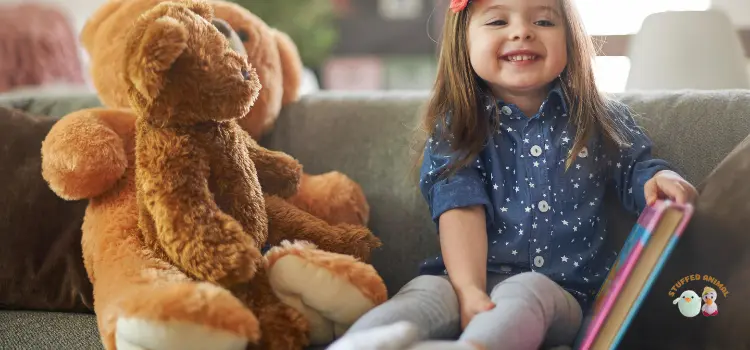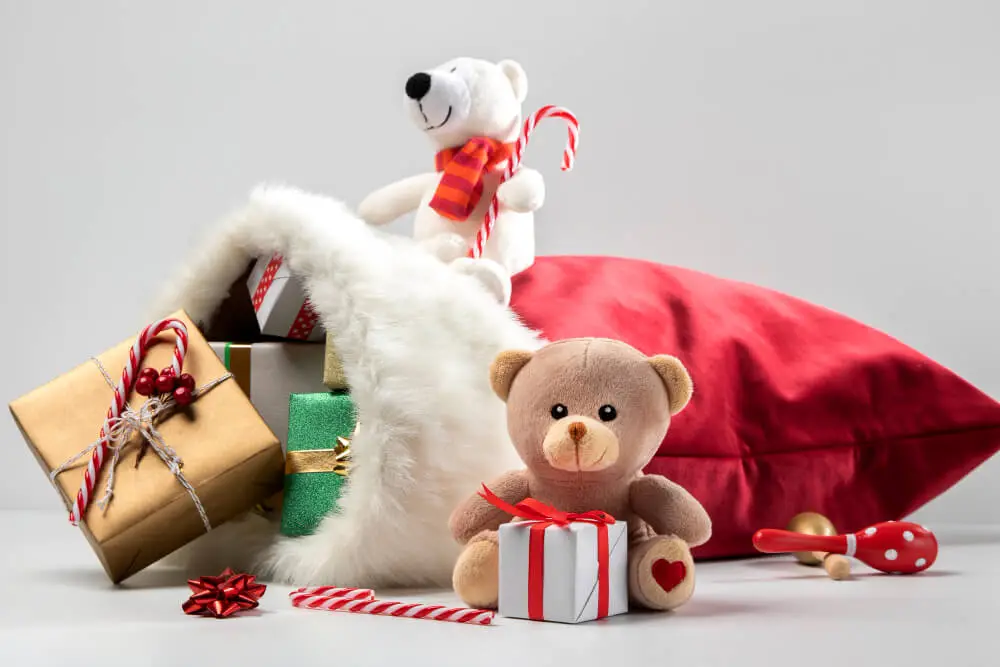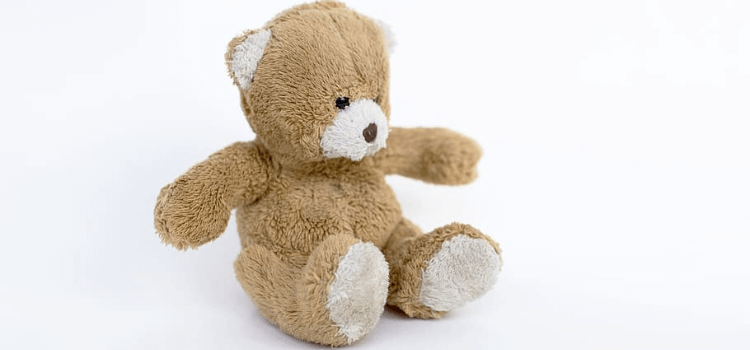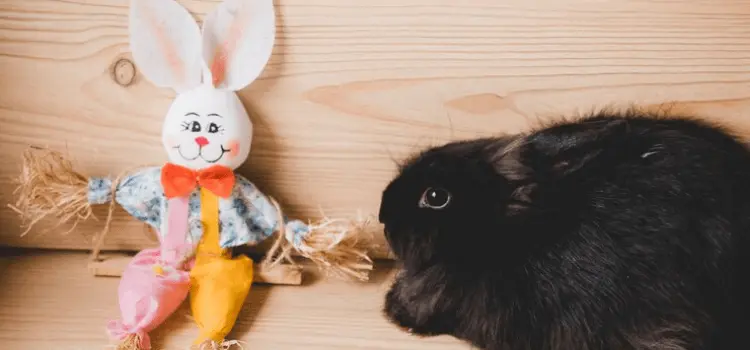Introduction
In a world filled with responsibilities and stresses, it may seem peculiar to suggest that grown children should have stuffed animals. After all, aren’t stuffed animals just toys for young children? However, there are numerous reasons why grown children should embrace these fluffy companions. In this article, we will explore the psychological, emotional, and even physical benefits of owning stuffed animals as adults. So, let’s dive in and discover why grown children should have stuffed animals.
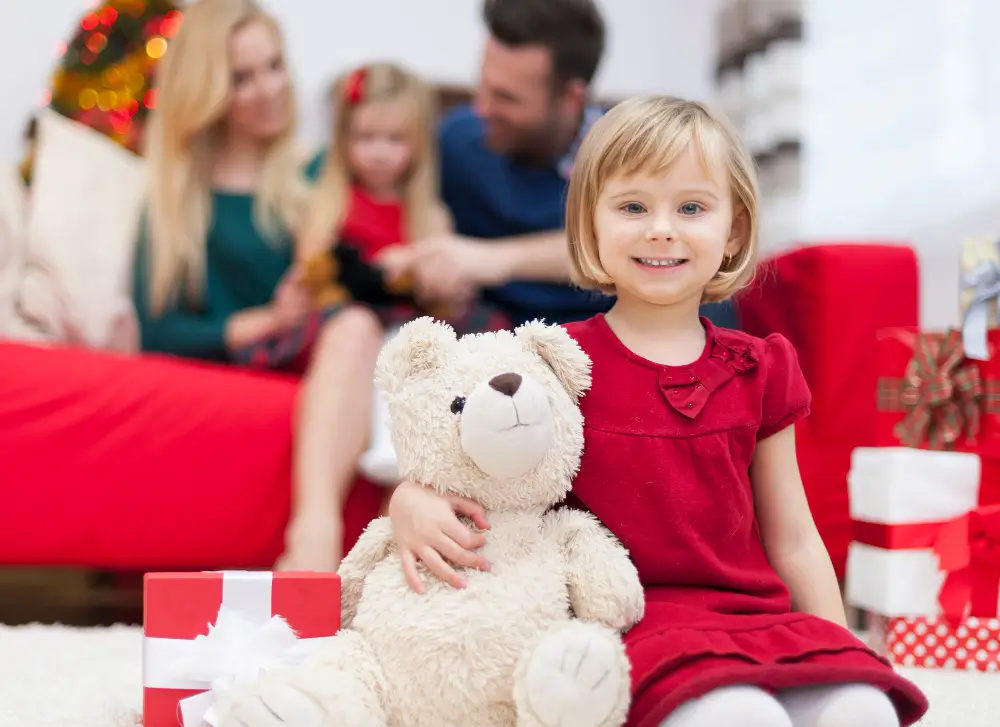
The Comforting Power of Stuffed Animals
Life can be tough, and sometimes, all we need is a little comfort and solace. Stuffed animals have a unique ability to provide a sense of security and reassurance, even to grown children. Just like a security blanket or a favorite pillow, these soft and cuddly creatures can bring a comforting presence during challenging times. Their familiarity and soothing touch can help reduce anxiety and promote a sense of calmness.
Nostalgia and Fond Memories
Stuffed animals often hold sentimental value, carrying a trove of cherished memories from childhood. These beloved companions can evoke nostalgia and transport us back to simpler times, reminding us of carefree days and the innocence of youth. Keeping a stuffed animal from childhood can serve as a tangible link to our past, allowing us to reconnect with cherished memories and experiences.
A Friend in Solitude
Life can get lonely at times, and having a stuffed animal as a companion can help alleviate feelings of isolation. Grown children often face the challenges of adulting, such as moving away from home, starting new jobs, or going through life transitions. During such times, a stuffed animal can provide a sense of companionship and serve as a loyal friend, offering a listening ear and a comforting presence.
Stress Relief and Relaxation
The demands of adult life can be overwhelming, leading to stress and tension. Stuffed animals can play a significant role in stress relief and relaxation. Hugging a soft, plush toy can release oxytocin, the hormone associated with feelings of love and bonding. This can help reduce stress levels and promote a sense of tranquility. Taking a moment to cuddle with a stuffed animal can be a simple yet effective way to unwind after a long, tiring day.
Decorative Delights
Stuffed animals aren’t just for children’s bedrooms. They can also be delightful decorative additions to grown children’s living spaces. With a wide array of designs, colors, and sizes available, stuffed animals can be incorporated into home decor in creative and whimsical ways. Placing a few adorable plush toys on a shelf, arranging them on a bed or couch, or even using them as unique throw pillows can add a touch of charm and playfulness to any room.
Therapy and Emotional Support
Stuffed animals are often used in therapeutic settings to provide emotional support and comfort. These cuddly companions can be especially beneficial for growing children who may be dealing with emotional challenges or mental health issues. Talking to a stuffed animal can offer a safe outlet for expressing thoughts and feelings, helping individuals process their emotions in a non-judgmental and supportive manner.
Conclusion
Stuffed animals have a remarkable ability to bring comfort, joy, and emotional support to grown children. From providing a sense of security to evoking cherished memories, these fluffy companions have a valuable place in the lives of adults. Whether it’s for stress relief, decoration, or therapeutic purposes, the benefits of owning stuffed animals extend far beyond childhood. So, if you’re a grown child looking for a source of comfort or a touch of whimsy in your life, don’t hesitate to embrace the world of stuffed animals.
FAQs About Grown Children and Stuffed Animals
1. Can stuffed animals help reduce stress in grown children?
Absolutely! The act of hugging a stuffed animal triggers a release of oxytocin, which can promote relaxation and reduce stress levels in grown children.
2. Are there any health benefits associated with owning stuffed animals as adults?
Yes, there are potential health benefits. Research suggests that the comfort provided by stuffed animals can help lower blood pressure and heart rate, leading to a healthier cardiovascular system.
3. Is it normal for grown children to feel attached to their childhood stuffed animals?
Yes, it is entirely normal to feel attached to childhood stuffed animals. These toys often hold sentimental value and can provide a sense of nostalgia and emotional connection.
4. Can stuffed animals help adults with anxiety or other mental health issues?
Stuffed animals can serve as a source of comfort and emotional support for adults dealing with anxiety or other mental health issues. They can provide a soothing presence and a safe outlet for expressing emotions.
5. How can grown children incorporate stuffed animals into their adult lives?
Grown children can incorporate stuffed animals into their lives in various ways. They can display them as decorative items, cuddle with them for comfort, or even take them along on travels as a familiar companion.
6. Is it okay for grown children to buy new stuffed animals?
Absolutely! There’s no age limit for owning stuffed animals. Whether it’s a new addition to the collection or a nostalgic purchase, grown children can enjoy the comfort and companionship that stuffed animals provide.

